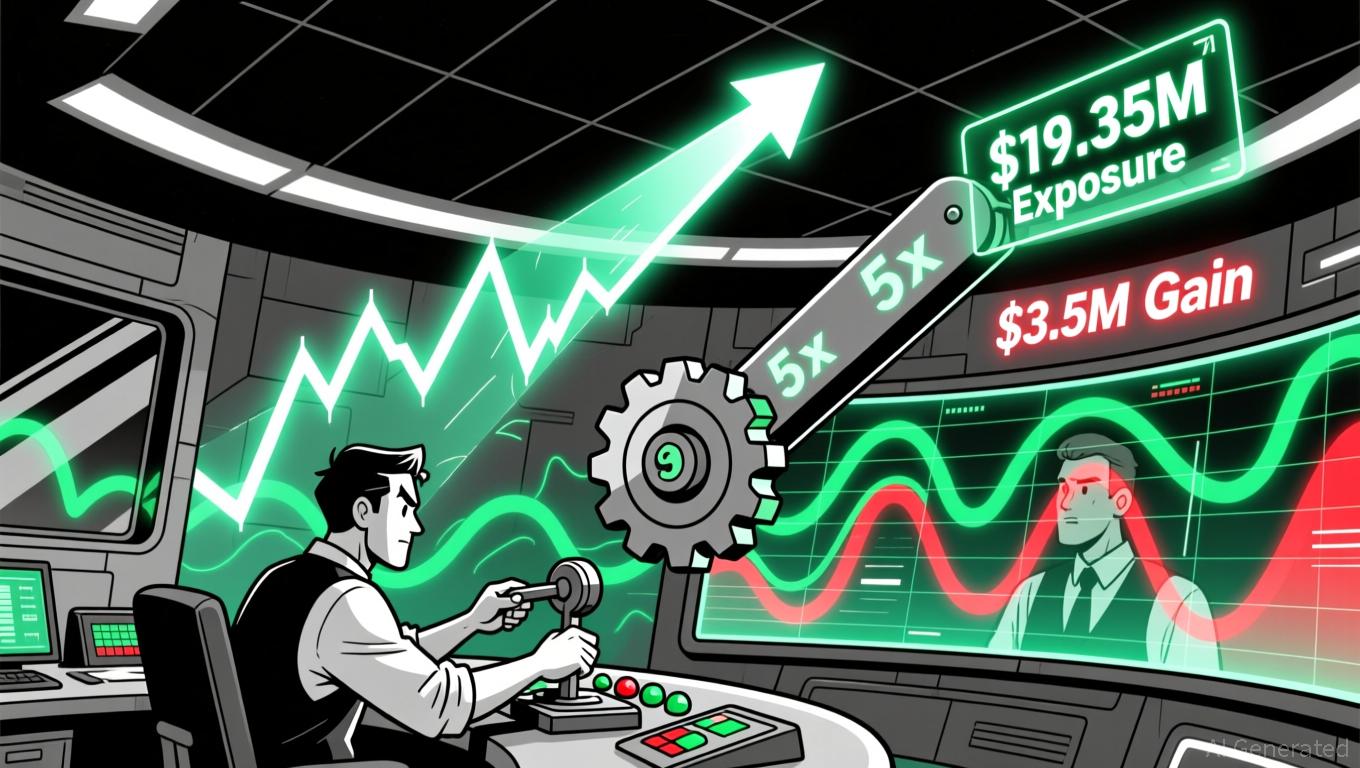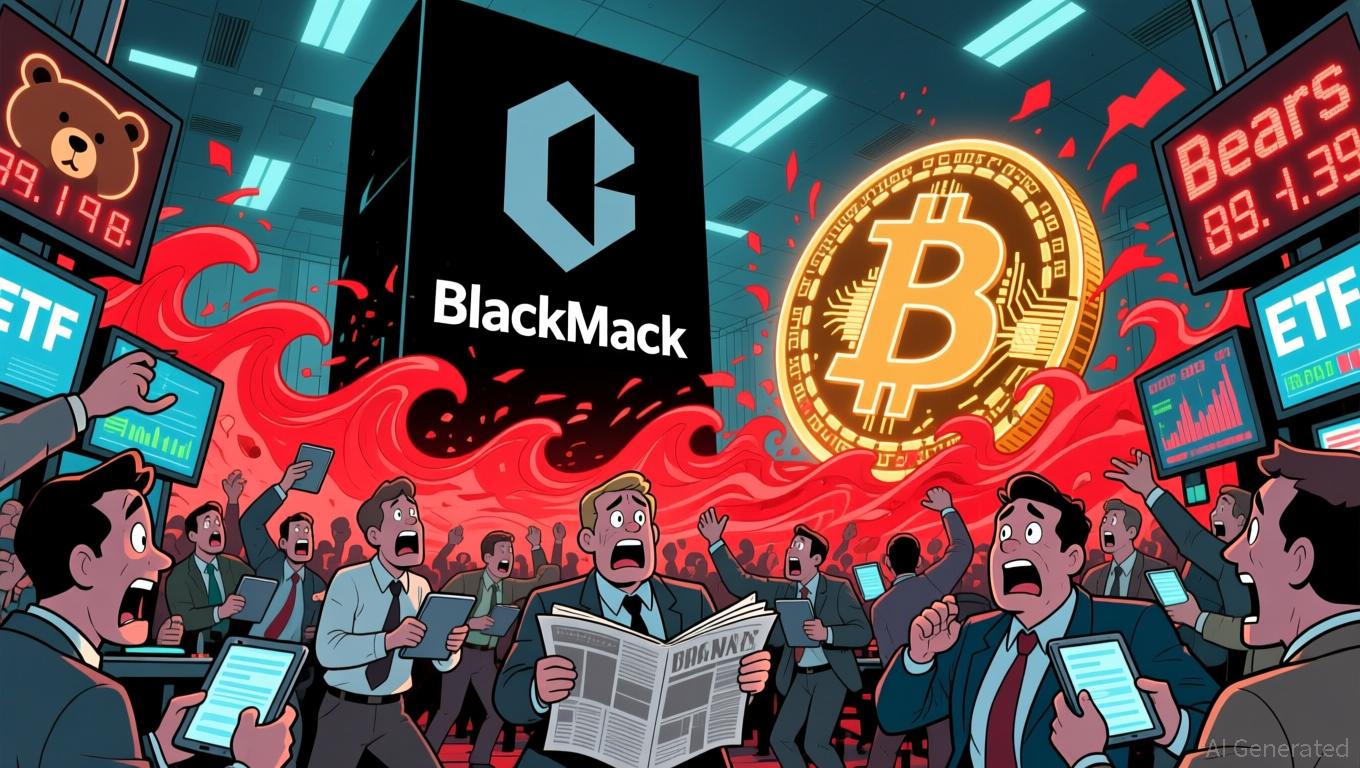Federal Reserve’s Rate Policy Raises Inflation Concerns
- Main event, market impacts, expert insights.
- Rate cuts risk inflating markets.
- Crypto reactions to Fed signals.
Rate cuts by the Federal Reserve could prolong high inflation, as warned by Fed Governor Christopher J. Waller. The caution emphasizes maintaining financial stability and affects both traditional and crypto markets, exemplified by SOL’s recent 14% drop.
Federal Reserve official Christopher J. Waller recently warned that further rate cuts might prolong high inflation, affecting financial stability across markets.
Market focus has sharpened on the Federal Reserve’s interest rate trajectory , weighing its effects on both traditional and crypto markets.
Christopher J. Waller, a Federal Reserve Governor, emphasized the risk of easing too soon, potentially endangering inflation progress. Increased caution prevails among institutional allocators, with capital on hold for clearer rate and inflation signals.
The Fed’s announcement caused a 14% drop in Solana, mirrored by a 6% temporary decrease in DeFi’s total value locked; stablecoin swaps increased. These movements highlight the crypto market’s sensitivity to Federal Reserve decisions .
Institutional investors await clearer Federal Reserve signals for greater capital movement into Web3. Stablecoins remain stable despite potential regulation shifts.
“Participants generally noted the risk that easing too soon could endanger progress on inflation.” — Christopher J. Waller
Raoul Pal noted that market hypersensitivity to Fed words demands inflation clarity before crypto capital influx. Arthur Hayes suggested that unchanged US rates create unpredictability for Bitcoin advances until political pressures modify Fed policy. Brian Armstrong highlighted Fed hesitancy as a barrier for Web3 capital entry.
The Federal Reserve’s recent warnings reiterate the importance of balanced rate policies to avoid destabilizing market conditions , with significant implications for institutional and cryptocurrency markets globally, echoed in past monetary policy impacts.
Disclaimer: The content of this article solely reflects the author's opinion and does not represent the platform in any capacity. This article is not intended to serve as a reference for making investment decisions.
You may also like
Vitalik Buterin Backs ZKsync: Accelerating Ethereum’s Expansion and Advancing Layer 2 Solutions
- Vitalik Buterin endorses ZKsync's Atlas upgrade, highlighting 15,000 TPS, $0.01 fees, and bridging Ethereum's Layer 1/2 liquidity. - ZK Stack innovation reduces capital fragmentation while Airbender prover enables 2-GPU L1 block proofs, advancing Ethereum's scalability. - ZKsync now holds 15% Layer 2 TVL with 50% ZK token surge, but faces 60x performance gaps and competition from Arbitrum/Optimism. - Upcoming Fusaka upgrade targets 30,000 TPS by December 2025, while Kohaku privacy framework addresses ado
Investment Prospects in Layer 2 ZK Technologies After the ZK Atlas Enhancement
- ZK Atlas Upgrade (Oct 2025) boosts blockchain scalability via modular ZK solutions, enabling 15,000–43,000 TPS with $0.0001 per transaction costs. - Ethereum gas fees dropped 90%, TVL in ZK rollups hit $3.5B by 2025, with Deutsche Bank adopting ZK-rollups for institutional settlements. - Deflationary tokenomics drive capital efficiency: buybacks, burns, and staking rewards attract institutions, supported by $15B in Bitcoin ETF investments. - Analysts project 60.7% CAGR for ZK Layer-2 solutions, reaching
ZEC rises 6.32% in 24 hours as Hyperliquid holds a $19.35M long position
- ZEC surged 6.32% in 24 hours to $538.2 on Nov 22, 2025, despite a 9.7% weekly drop, with 36.25% monthly and 879.76% annual gains. - A $19.35M ZEC long position on Hyperliquid (5x leverage) shows $3.5M unrealized gains, highlighting institutional bullishness amid price volatility. - The leveraged position underscores amplified risks/rewards, with narrowing gains signaling market uncertainty and the need for cautious monitoring of macroeconomic/on-chain trends.

Bitcoin Updates: Billions Flow Out of Bitcoin ETFs While Stablecoins Strengthen as Core of Finance
- BlackRock's IBIT Bitcoin ETF recorded a record $523M outflow, pushing November's total U.S. spot Bitcoin ETF redemptions to $2.96B amid Bitcoin's 30% price drop. - Analysts link the exodus to weak fundamentals and macroeconomic uncertainty, with ETF outflows and long-term holder sales tightening liquidity and eroding investor confidence. - BlackRock filed for an Ethereum staking ETF as stablecoins surge in cross-border finance, processing $9T in 2025 payments while Bitcoin ETFs face sustained outflows an
